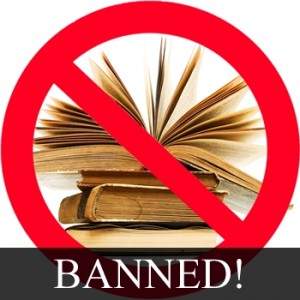In early August, CBLDF joined the National Coalition Against Censorship in defending several summer reading books that were challenged for “sexually explicit” content in Chesterfield County, Virginia. State Senator Amanda Chase, who has forced her way into the fray by suggesting the librarians who compiled the lists be fired and the books banned, has responded to the letter.
“National coalitions based out of New York should not dictate local school policy in Virginia,” says Chase, in an email obtained by Rich Griset at The Chesterfield Observer. “These issues are best addressed by a local coalition of parents, teachers and elected school board members at the local level, and at the state level where appropriate.”
In her statement, Chase conjures a common defense of censorship that is based on the concept of community standards, which allows for variation in values based on region. Chase argues that organizations based in New York City, which admittedly has different community standards than Virginia, couldn’t understand the situation in Chesterfield. However, such community standards can be difficult to define legally, especially when it comes to creative content. In the case of Chesterfield, the school district and Chase have let a very small minority of individuals ban content based on what they perceive as the community’s standards, but it hardly seems likely that the majority of the community would agree with these spurious and censorious standards. As NCAC points out in its letter, “A decision to remove the books would ignore the diversity of opinion in Chesterfield County and prioritize the ethical, moral, and religious views of a small but vociferous group of parents who object to the books.”
Although the censorship campaign against optional summer reading books was initiated by other parents, it was adopted with gusto by Chase, who has three children enrolled in Chesterfield County Public Schools. Initially, Chase suggested that the librarians who compiled the recommended reading lists should be fired and that award-winning books such as Eleanor and Park by Rainbow Rowell, Dope Sick by Walter Dean Myers, and Tyrell by Coe Booth be removed from school libraries altogether. Later, she added that future summer reading lists should include warnings for parents on books that may be controversial — effectively, a red flagging policy. (The concept is similar to a bill that passed through Virginia’s state assembly earlier this year before it was vetoed by Governor Terry McAuliffe.)
The school district already caved to pressure from a vocal minority of parents and replaced this year’s lists that had been compiled by district librarians with links to third-party sites including YALSA, Scholastic, and Read Kiddo Read. But even that appeasement did not satisfy Chase; because some of the critically praised books from the original lists also appear on the third-party sites, she says that “it’s the same thing” as the district recommending those titles directly.
The idea that Chase and a minority of parents don’t define community standards has been borne out by other members of the community, including Shelley Murray, a longtime librarian and former English teacher in the district, who advised that “I’m no lawyer, I’m not an expert, but it seems like it would be wise to pay attention” to NCAC’s letter.
Help support CBLDF’s important First Amendment work in 2015 by visiting the Rewards Zone, making a donation, or becoming a member of CBLDF!
